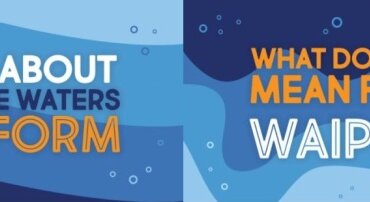
Waipā District Council will make a $15,000 contribution towards a new group which will lobby government to stall its controversial Three Waters Reforms.
Councillors debated the source of the funding and whether it was council’s role to campaign against the water plans, at this week’s Strategic Planning and Policy committee meeting.
The government is introducing legislation which compels councils to transfer their three water assets – drinking, waste and storm – to one of four new legal entities from July 2024.

Nanaia Mahuta
Local Government minister Nanaia Mahuta says the new entities will collaborate with councils and communities to deliver better health and wellbeing outcomes for communities and protect the environment for generations to come.
The $15,000 for the new lobby group, dominated by councils across New Zealand, will come from mayor Jim Mylchreest’s Mayoral Discretionary Fund but when the agenda for the meeting came out last week, the suggested resolution was for it to come from the Mayoral Relief Fund.
Before the meeting, The News approached the council to ask what the criteria or policy was for use of the Mayoral Relief Fund and how much there was in the fund.
Traditionally mayoral relief funds around the country provide one off financial support for residents after natural disasters or for those in extreme financial distress through no fault of their own.
In response, deputy chief executive Ken Morris acknowledged it was not that account the lobbying money would come from but from one set up at the mayor’s discretion.

Ken Morris
The mayor had not spent much from this fund over the years, he said.
“At the start of the current 2021/22 financial year there was $49,112 available to spend with $31,912 of that carry-forward balances and a new budget allocation of $17,200,” Morris told The News.
He apologised to councillors at the meeting for the agenda mistake.
Mylchreest’s opposition to Three Waters is well known and he wanted to use his discretionary fund.
A “grumpy” councillor Grahame Webber said he was unimpressed with the mistake in the agenda.
“It is unacceptable the recommendations weren’t finalised before they went out on the agenda.

Grahame Webber
“That’s not rocket science, we had senior people looking at that. To come back at the 11th hour and have that change, not a big deal.
“We’re all familiar with the relief fund, but in my view if we are going to be the home of champions, we should be making sure those resolutions are correct in the first place,” he said.
Chair Susan O’Regan agreed. “I’m a bit of a stickler for accuracy myself and your points are well made,” she said to Webber.
Councillor Marcus Gower asked why Local Government New Zealand (LGNZ), which the council funds to lobby on its and other councils’ behalf, was not doing the work the new group would do.
“I’m not feeling very comfortable about this.”
LGNZ tried to influence the government but entered a memorandum of understanding with the government to work with it on the water reforms, said Mylchreest.
 “Effectively the group is being formed because they don’t believe LGNZ is representing the views of the community. This (new) group is really formed out of frustration.”
“Effectively the group is being formed because they don’t believe LGNZ is representing the views of the community. This (new) group is really formed out of frustration.”
Timaru District Council, the driver behind the new lobby group’s formation, left LGNZ in protest at its inactions. Other councils had talked about doing the same, said Mylchreest, but none had yet.
“We are elected to look after the best interests of our ratepayers. If I thought we were going to get a more effective and efficient result from these reforms, I would support it, but I don’t believe this is the case.”
Waipā had invested heavily into its infrastructure and the Three Waters Reforms would see the district compensating other areas that had not done the same, he said.
One councillor spoke against the recommendation.
Andrew Brown said if water services remained with Waipā, the council “may well be able to achieve some efficiencies.”

Andrew Brown
“I do not believe we will get anywhere near the efficiencies that a larger organisation will achieve which means that every water connected ratepayer is going to be paying more and I believe significantly more for their water than they would if we went with the government’s proposal.”
Council voted to make the contribution towards the new group with only Andrew Brown recording his vote against it.








